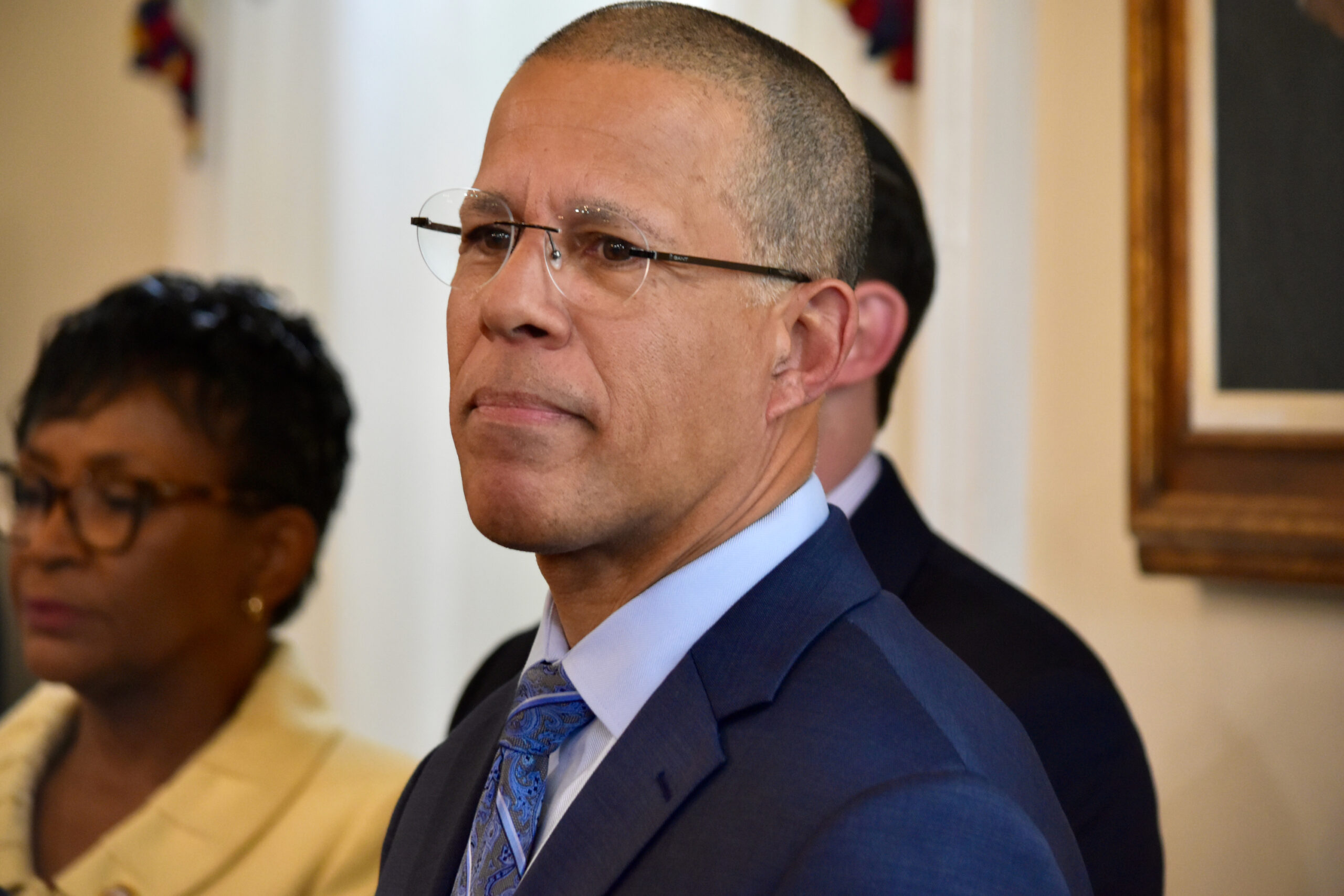Maryland Attorney General Brian E. Frosh (D) brought consumer protection charges Thursday against the manufacturer of OxyContin, saying members of the family that controls Purdue Pharma engaged in unfair and deceptive practices that hooked Marylanders on dangerous drugs, including thousands who died from opioid overdoses.
The case was filed at the same time as four others in Iowa, Kansas, West Virginia and Wisconsin.
The cases took different forms in different states, but Frosh said administrative charges were the best course of action for the state of Maryland and would allow the case to be heard before an administrative law judge within a matter of months.
In a 106-page statement of charges alleging violations of the Maryland Consumer Protection Act, Frosh argued that Richard Sackler, former Purdue Pharma president and board member, along with members of his family, repeatedly engaged unlawfully in unfair and deceptive practices in the marketing of opioid products by promoting and selling the opioids to treat conditions for which they were unnecessary and neither safe nor effective. Some of the drugs involved included MSContin, OxyContin, and Dilaudid.
“The strategies allegedly used by Purdue and the Sacklers were calculated, misleading, and extraordinarily effective,” Frosh said in a statement. “According to the charges, sales were prized over safety, and sales representatives for Purdue referred to the highest dosage for OxyContin as ‘hillbilly heroin.’ In Maryland alone, thousands have died, many more have become addicted, and the costs to our state and its people have been staggering.”
On a national conference call Thursday, Frosh said the state brought claims against seven members of the wealthy Sackler family because they controlled and directed misconduct, including directing sales representatives to promote dangerous opioids through aggressive quotas, extravagant bonuses and other sales tactics.
The family members individually charged are Richard S. Sackler, Jonathan D. Sackler, Mortimer D.A. Sackler, Kathe A. Sackler, Ilene Sackler Lefcourt, Theresa Sackler and David Sackler.
“They took billions of dollars out of the company and we allege in our complaint that they oversaw Purdue’s use of savings cards to get patients on Purdue opioids for longer periods of time. They oversaw Purdue’s targeting of prescribers without special knowledge of opioids as they were most likely to respond to Purdue’s sales techniques. They managed Purdue’s alleged focus on encouraging patients to use higher doses of opioids … which led to addiction, overdoses, death,” Frosh said. “And at the same time increased profits for the company.”
The Maryland case seeks an order that Purdue cease and desist from unfair, abusive, and deceptive trade practices, disgorge all revenues it has received from such practices in Maryland, pay penalties for each violation, and pay the state the economic damages it has sustained as a result of Purdue’s practices.
“While the amount of recovery will have to await the administrative hearing, especially given Purdue’s statements concerning its alleged financial condition, the Statement of Charges notes that the number of violations and the damages sustained by the State and its citizens have been staggering,” said Raquel Coombs, a spokeswoman for the Maryland Office of the Attorney General.
In March, the Purdue Pharma CEO said that bankruptcy could be a way for the company to cope with mounting financial liability from lawsuits and claims. The Thursday complaints add on to suits by at least 40 other states; a consolidated federal case in Ohio includes more than 1,500 cities and counties, including several from Maryland.
Sackler family members are personally paying for part of a settlement reached with the State of Oklahoma. But the company has seen some success in defending claims. Last week, a federal judge in North Dakota dismissed that state’s lawsuit, which is expected to be appealed.
In a statement on Thursday, Purdue generally denied the allegations in the new cases.
“These complaints are part of a continuing effort to try these cases in the court of public opinion rather than the justice system,” the statement said. “The states cannot link the conduct alleged to the harm described, and so they have invented stunningly overbroad legal theories, which if adopted by courts, will undermine the bedrock legal principle of causation.”
Parts of the publicly released statement of charges are redacted, including the number of times Purdue sales representatives visited Maryland health care providers and notes from sales calls made in Maryland between 2006 and 2016.
The statement also focuses on overprescription of prescription opioids in some Maryland counties. In 2016, for example, there were enough opioids distributed in four Maryland counties to give a prescription to every adult, child and then some, according to the statement of charges. In Washington County, there were 170,000 prescriptions for approximately 150,000 adults and children. In Kent County, pharmacies dispensed 23,000 prescriptions for 19,700 people. In Allegany County, the prescription rate was 92,000 for 72,000 people.
There were 2,110 opioid-related overdose deaths in Maryland last year, according to preliminary figures released by Maryland’s Opioid Operational Command Center earlier this month.
Frosh’s office said Maryland’s opioid overdose death rate has been consistently above the national average since 1999. Baltimore City had an overdose death rate of 45 per 100,000 residents in 2016, compared with the national overdose death rate of 13.3 per 100,000 persons.
Frosh’s office employs three dedicated in-house attorneys to work on opioid cases, which also includes a pending action against opioid manufacturer Insys Therapeutics. The office has also retained outside counsel from three firms – Robbins Geller Rudman & Dowd, Lieff Cabraser Heimann & Bernstein, and Silverman Thompson Slutkin & White – to help the opioids team in the Sackler case and in other ongoing opioid investigations.




 Creative Commons Attribution
Creative Commons Attribution